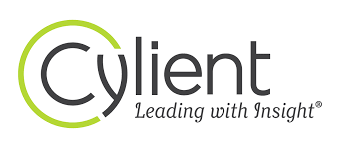ATD Blog
COVID-19: Our Opportunity to Metabolize Fear Into Potential, Together
Fri Apr 10 2020

The COVID-19 pandemic has spawned a pandemic of its own. The fear that is quickly spreading around the world is even more contagious than the virus itself and can be far more destructive.
Nothing limits human potential more than fear. When people are fearful, they close down and devote their energy to protecting themselves. That’s a problem for all of us, now more than ever, because we need the creative contributions of everyone to navigate through this crisis and co-create what comes next. The pandemic is giving us the opportunity to completely reinvent ourselves and our organizations. I believe that now is the time for us to learn how to metabolize the inherent power of our fears and turn them into creative energy that we can use to push the boundaries of what is possible in every area of our lives.
Let’s take a moment to get clear on what fear is and isn’t. Natural fears, like the fear of deadly snakes or falling off of cliffs, are useful fears that keep us safe. That’s not the kind of fear I’m talking about. The fears that truly limit our potential are the ones that we wire up for ourselves as result of our life experiences, like the fear of losing control or being wrong. Those kinds of fears become limiting beliefs that keep us from taking the risks we need to creatively respond to challenges.
Fear is a form of energy that changes depending on how you respond to it. If you believe that your fears are insurmountable barriers, that’s exactly what they become for you. If, on the other hand, you believe your fears are invitations to push through your boundaries by learning something new, then that’s what you experience. When fear is greeted in this way, it transforms into pure potential that invites us to expand our thinking and our capabilities into new territories. This is the kind of energy we need to wire up personally and in our organizations to find our way through this pivotal moment in time.
While there are many naturally occurring phenomena, like the pandemic, that ignite our fears, the sad and unfortunate truth is that we collectively hold many limiting beliefs that literally manufacture fear and make it a ubiquitous part of our lives. None are more prevalent, powerful, or debilitating than our commonly held beliefs about what it means to be a good leader. Our traditional approach to leadership is fundamentally based on a belief that we have to direct and correct people for them to be productive. This fear-based approach to leadership is operationalized through subtle, and sometimes overt, threats such as shaming, blaming, and censoring people to get them to do what leaders want them to do. When frightened people are managed in these fear-based ways, they tend to shut down, act out, or get out. None of these behaviors are helpful to anyone involved.
This form of leadership, with its persistent drive toward efficiency, worked well to enforce compliance on assembly lines and in hierarchies back in the previous century. In our current times of turbulent change, the cultures of fear that direct and correct leadership engender cause people to lose confidence, play it safe, and stick to what they know. Worse yet, they keep people with diverse perspectives and capabilities from reaching out and connecting with each other to address the increasingly complex issues that we currently face. The sheer weight of these fear-based cultures will become heavier as the need to pivot and respond to abrupt changes becomes more acute.
When frightened people are met with curiosity, compassion, and courage, they feel safe and seen. They’re open and accept the support they need to turn their fears into new ways of thinking and being. That’s what coaching-based leadership does. That is what is needed to metabolize our fears into opportunities.
I believe that how we choose to work with fear will greatly impact our abilities to respond effectively to the uncertain and chaotic environment that the COVID-19 pandemic is manifesting. I know that asking people to change their leadership style in the midst of a crisis is a big request. I wouldn’t suggest it if I didn’t believe that this fundamental change will help you—and all of us—find our way through these chaotic times more quickly while simultaneously co-creating a new world we can all flourish in.
If you are looking for more resources on coaching-based leadership, visit the Cylient blog, where Cylient chief executive officer Dianna Anderson is providing resources on how to incorporate coaching-based leadership approaches in times of uncertainty.

